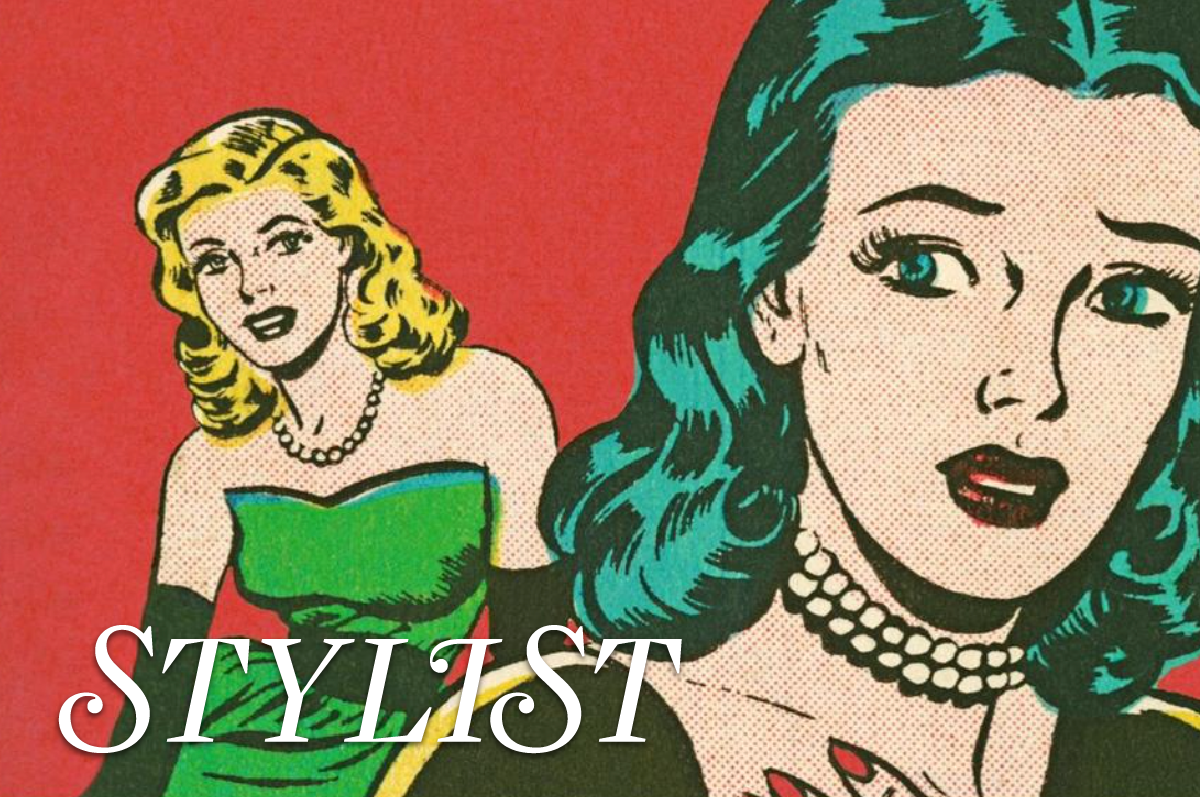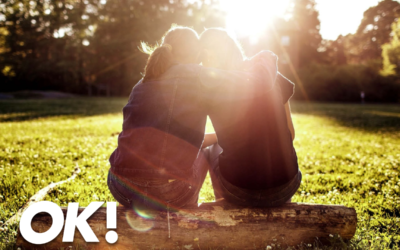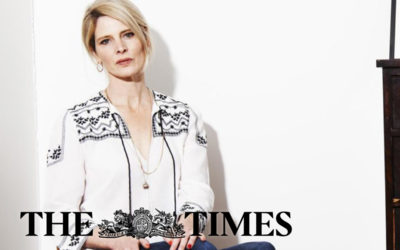“As the ‘forgotten friend’, I’m often a better friend to others than they are to me, and it’s lonely”

Are you there for everyone else but rarely prioritised in return? Here’s how to navigate being the ‘forgotten friend’.
Alice, 31, recently helped her friend through a difficult situation. “My friend’s married, cheated on her husband, became pregnant with the other guy’s baby and had a termination,” Alice explains. “I carried her the whole time, supporting her decisions without judgment, listening to her fears and concerns, driving her to the clinic.” A few months have now passed, and her friend is doing much better, but Alice feels she’s been left behind. “It’s like I’ve been forgotten now that I’m no longer needed,” she says. “I have my own challenges – granted they’re not as severe as hers were – but why can’t I be checked in on too?”
It’s not the first time this has happened to Alice, and she fears it won’t be the last. In fact, this kind of thing happens to her all the time. “I’m the one everyone comes to because I’ve basically lived nine lives and had a lot of experiences with upbringing, relationships and family feuds,” she says. “But while everyone wants to come to me for advice, they’re not there to give it back in return or even check in to see if I need any support. It seems especially striking given that I’m the single one in the group.”
It’s a feeling many will relate to: the sense of being a ‘forgotten friend’ who’s always there for others else but rarely prioritised in return. While the effect might come into sharper focus in the wake of a dramatic situation, as it did for Alice, it can also be felt in more subtle, everyday ways. For Natasha, 29, it often comes from the simple act of trying to make plans and maintain connections forged over the years. “I feel like I’m the one constantly trying to reach out to people,” she says. “I live by myself, so I’m always keen to make plans, but it’s never them trying to see me. And then I’ll see them posting Stories when out with other friends (sometimes they’re mutual) or even out by themselves, and I’ll wish they’d thought to include me.”
I’m always the one starting the conversation
It’s all too easy to long for the kind of effortlessly devoted friendships presented to us in popular culture, yet much harder to keep real-life relationships joyful and mutually beneficial. But even before the point of making plans, Natasha has started to feel forgotten in increasingly subtle ways, including when trying to keep in touch with friends who live in the same city as her. “I feel like I’m starting the conversation a lot, which means I’m usually asking them a question, but I don’t often get asked anything in return,” she says. “My bestie is good enough that I can just trauma dump or message her and she’ll always reply, but she lives far away, so I don’t get the closeness of friendship with her. My friends who live in London are so busy with their own lives that friendship seems to slip.”
This gradual shift becomes more pronounced as we enter the ‘splinter era’ of friendships, when lives begin to diverge as some friends settle down and have children while others stay single and prioritise other experiences. “It’s so hard being in a city in your 20s and 30s – everyone is just trying to get by, and it can feel difficult trying to find time to see all your friends,” says Claire, another millennial woman who’s noticed the forgotten friend effect. “I have some friends who I feel make no effort or it’s a very one-way effort just from me, but then you don’t want to let them go, particularly when it’s school friends you’ve known for such a long time.”
As psychologist Mairéad Molloy explains, this shift is a near-universal experience. “The feeling of being the forgotten friend is often rooted in changing social dynamics and the psychological impact that follows,” she says. “As friends enter romantic relationships or start families, their priorities naturally change, often leading them to spend far more time and energy in their new roles. For friends who have been a reliable source of support, this can lead to feeling undervalued or sidelined. This experience is tied to attachment theory, which suggests that we have a fundamental need for secure and reciprocal relationships.”
While it can be deeply upsetting for the friend left feeling forgotten, it’s often an unintentional change, says Molloy. “Often, when friends seem less present or supportive, it is because they’re genuinely caught up in their own lives, especially during significant life changes,” she says. “This is not necessarily a reflection of their feelings towards the friendship but rather a shift in their priorities driven by their new circumstances. The person who is less available should try to communicate their lack of availability to their friend – this is crucial if they are to maintain their friendship.”
As for those on the other side of the friendship, there are some simple ways to navigate the experience, and it all starts with self-reflection. “If you are a good friend to others, then take the time to be a good friend to yourself,” says Dr Gisele Caseiras, a psychodynamic psychotherapist at Likeminds London. “Start by taking a step back and reflecting on your own needs and what you can (and can’t) do for other people, as well as yourself. Then, once you’re aware of your needs and boundaries, you can start to verbalise this and tell your friends what you need from the relationship.”
It’s also worth bearing in mind that certain people are more prone to feeling like a forgotten friend than others. “If you find yourself feeling like this quite often, it’s probably because you’re unconsciously prioritising the needs of others instead of yourself,” explains Caseiras. “People who are more likely to experience these feelings include those who fear disappointing others, those who often seek validation and those who tend to try to please people all the time.” Molloy agrees, explaining: “People-pleasers are driven by a deep need for approval and fear of rejection. They frequently go out of their way to help and support friends, often at the expense of their own wellbeing, and because they rarely express their own needs or set boundaries, others may take their kindness for granted.”
According to Molloy, introverts with a strong sense of loyalty are a personality type particularly at risk of being ‘forgotten’. “Introverts who form deep, loyal bonds with a few close friends may be particularly vulnerable to feeling forgotten,” she says. “They invest heavily in maintaining these relationships but because they tend to have a smaller social circle, the loss of attention or connection from a close friend can feel especially acute.”
Once you’ve reflected on the experience and, if possible, verbalised your feelings and boundaries to friends, it’s time to wait for the situation to improve. If it doesn’t, it might be time to walk away. “If friends consistently fail to show up, it might mean that they are not as attentive or considerate in their friendships, either due to lack of awareness, differing expectations or simply not valuing the friendship as much as the other person does,” says Molloy. “If a pattern of neglect persists despite your efforts, you may want to reassess the value of your friendship and consider expanding your social network.”
While finding new friends might be easier said than done, it’s important to remember that you don’t have to fight for a friendship if it’s no longer serving you. While both Alice and Natasha are still fighting not to be forgotten, they’re both realising that their energy may be better invested in different friends.
Why you can’t stop picking your spots (even if you want to), according to a psychologist
If you secretly enjoy popping whiteheads or spending your evenings in...
How healthy is your relationship? The simple ways to find out
The key signs of a healthy relationship… Attraction and intimacy While it...
12 things you should never say to your partner
Did you know that telling someone to ‘calm down’ during an argument might...
Coping with a sudden death
When a loved one or celebrity dies, it can trigger feelings of shock,...
Don’t feel scared at thought of an ‘empty nest’ this September if you’re a solo parent – try to treat this seasonal time of transition as an opportunity to rediscover ‘you’
Whether you co-parent with your ex-partner or are bringing up your child...
Adolescent Mental Health
This article was published on Dr. Sophia Khalique Medical Practice's blog...
Benefits of group & individual therapy
As seen in the Simon, a 42-year-old graphic designer, recently undertook...
Why do I binge-eat and how can I face my guilt?
As seen in A few months ago I was tidying up after my youngest son’s...
Would you like to join our mailing list?
From time to time we may notify you of new blogs on the website, or share thoughtful, relevant articles and content, aimed at informing and helping people.
© 2020 Likeminds Psychotherapy and Coaching - London | Glossary | Privacy Policy | Site by Diagonal








